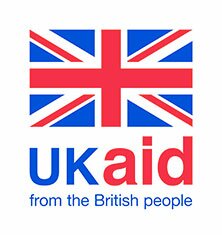OPM through the Building Resilience in Ethiopia (BRE) and Maintains programme, together with MERQ Consultancy and the Government of Ethiopia have just published part two of a six-part study which aims to understand the impact of COVID-19 and government response measures on poor and vulnerable groups in urban areas in Ethiopia. In this blog, we spoke to lead researcher Donna Harris about the findings and challenges so far...
What impact has COVID-19 had on the urban communities in the 10 cities you’ve explored in Ethiopia?
There’s no doubt that poor and vulnerable communities have been hit hard by the pandemic where population densities are high and health services are often poor. The number of people infected has reached over 87,000 and our data collection teams have already seen stark changes from our first round of observations. They have observed that people have become less likely to wear a facemask, keep physical distance and avoid public gatherings.
Whilst the easing of restrictions has given people increased employment opportunities, both reports have demonstrated that persistent increases in food prices are giving people real affordability issues. Even though more respondents reported being able to consume three meals a day, most were not able to eat meat, fruit, or vegetables due to their high prices.
Which groups would you say have been most affected by COVID-19?
Daily wage earners, people with jobs in the informal sector, vendors, petty merchants and labourers were found to be the most likely to be impacted due to loss of jobs and livelihoods. People who are beneficiaries of the (UPSNP) were seen to struggle more than small business owners in terms of income and access to food and water (which will be further investigated in round 3 of this study). Migrants and people living with no social safety nets were also found to be particularly vulnerable to the disease, and it was found that they may not have received sufficient aid and support.
What about female-headed households?
73% of the female respondents were recipients of the UPSNP which designates them as the ‘poorest of the poor’, as opposed to 23% of male respondents. But out of all of the respondents who received support from this project, it was found that 70.4% of this group relied on the mother to provide childcare during the school closure, placing childcare responsibilities mostly in the hands of women.
What are the most alarming findings from your study?
The most alarming finding is that some of the young girls in our sample got married following school closures and the median age at marriage was 15 years. This is a trend that is also showing in other studies in Ethiopia as well as in other countries as detailed in this snapshot by .
It was also noted that although a decrease from Round 1 of the study, there are still 55% of respondents who report feeling stressed, scared and frustrated. There was a statistical increase, from 15% to 18% in probable symptoms of depression among respondents which is a cause for concern.
As time has gone on, it has been observed that there has been increased misconceptions of COVID-19. Now that restrictions are being incrementally eased, it is noticed that people are less likely to practice social distancing and wearing a face mask, especially when attending religious ceremonies. Some people even question the existence of the pandemic. This urgently needs attention in terms of policy response as well awareness and educational campaigns to be reinvigorated. It is necessary to ensure that these efforts are tailored to the more vulnerable groups who may not have access to social media, internet, TV or even radio and it may require messaging to come from religious or community leaders, as well as through the media.
What are the most important further measures the government could take that would best support the most vulnerable groups?
Over 60% of the total households (257) had at least one child attending primary or secondary education before schools were closed due to COVID-19. Of these, only 28% had access to an educational platform, including TV and radio, to help them learn from home. Respondents felt that nothing was done to help children learn from home. Ensuring that children from poor and vulnerable families have access to education materials is vital if gender and income inequalities are not to be exacerbated by the pandemic, with impacts down the generations.
What challenges have you faced during the first two parts of the study?
Like in the first round, the restriction measures imposed by the Ethiopian Government varied across the ten cities which included the federal government officially lifting the state of emergency which had been declared in April. Some states also conducted regional elections which around 2.5 million people participated in and during the second round of data collection and the assassination of a well-known Ethiopian singer resulted in riots and public demonstrations in most of the study areas. This has caused problems for our data collection and we had to be very adaptive to the constantly changing environments in addition to the pandemic itself.

What can we expect from the rest of the study?
Our findings so far highlight how important it is that policy design ensures the most vulnerable benefit from the support provided by government and other organisations, and that the process of targeting the support is transparent. In Round 3 we will be interviewing CSO’s, NGO’s, local government offices and healthcare professionals in order to deepen our understanding of the impact of COVID-19 on these service providers as well as to gain a broader sense of what responses have been provided to these organisations. Our mixed methods design which employs both qualitative and quantitative data in the form of semi-structured and diary-style interviews as well as case studies is very dynamic. We’re engaging groups such as IDPs, refugees and ‘special population groups’ like daily labourers and commercial sex workers, which is giving us some rich insight into how individuals and communities are being so adversely affected by the pandemic. We will also continue to evaluate the effect COVID-19 is having on respondents’ mental health.
To read the full research reports, briefs and learn more about the study, visit: maintainsprogramme.org/ethiopia
The study is funded through the Building Resilience in Ethiopia (BRE) Programme and implemented in partnership with the Maintains Programme.



